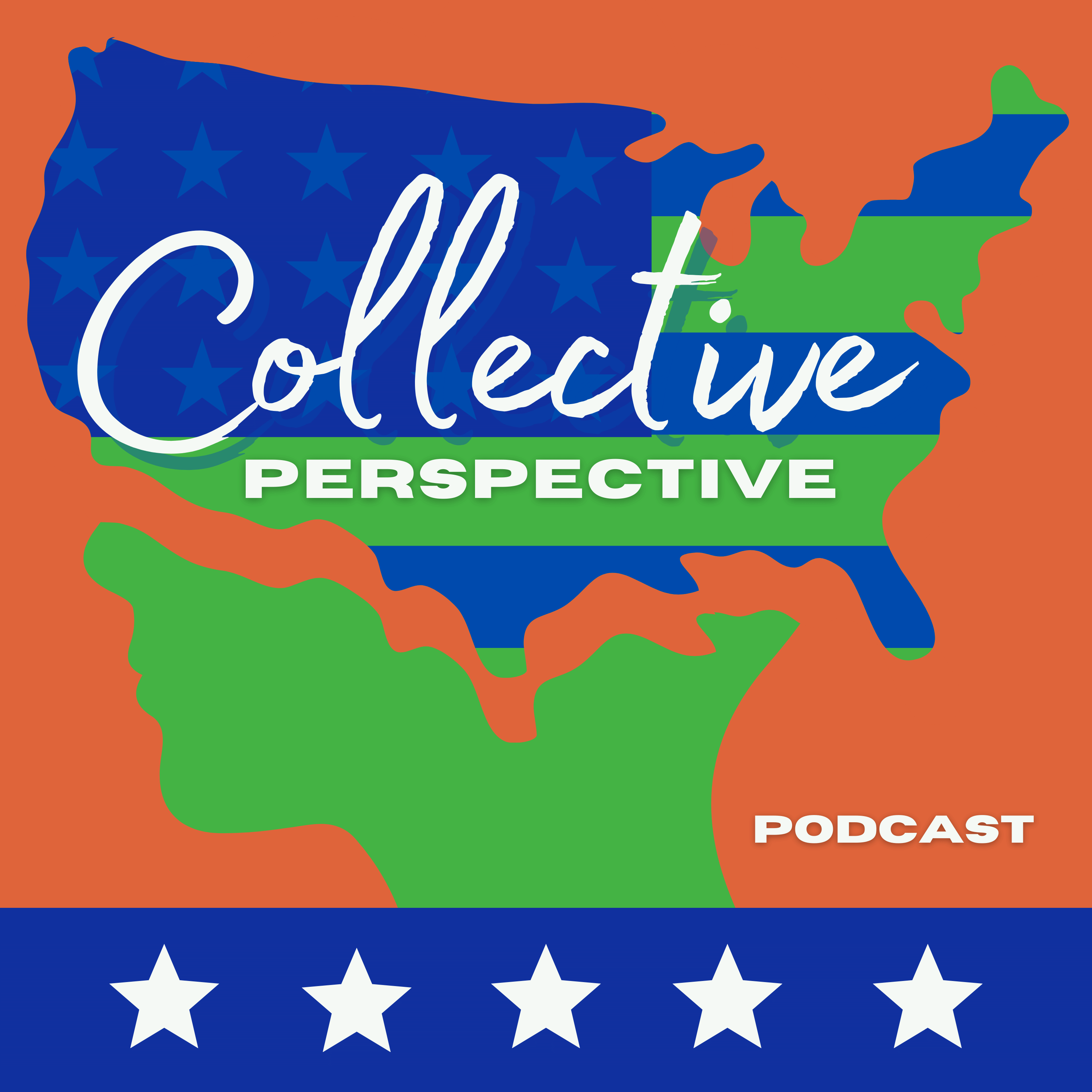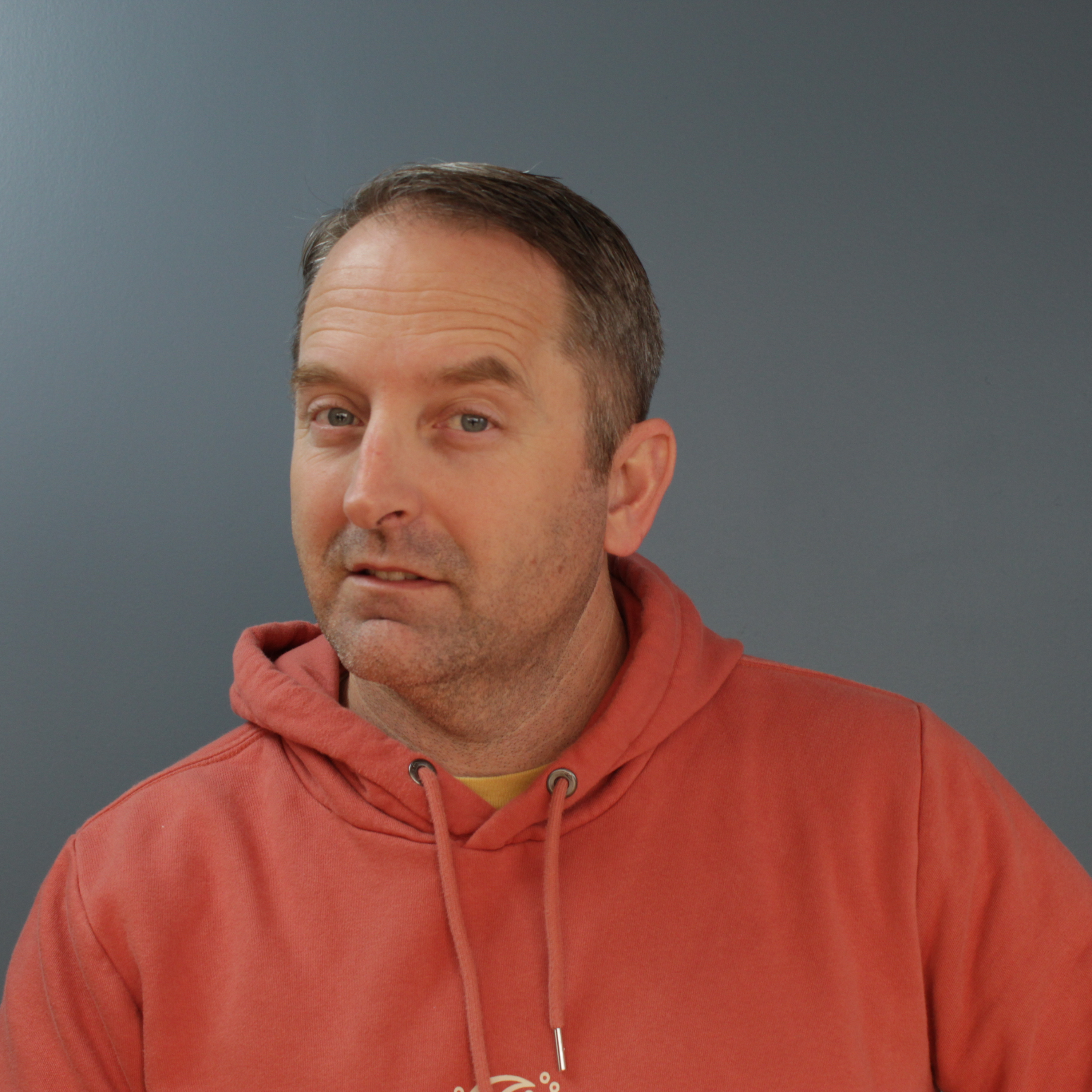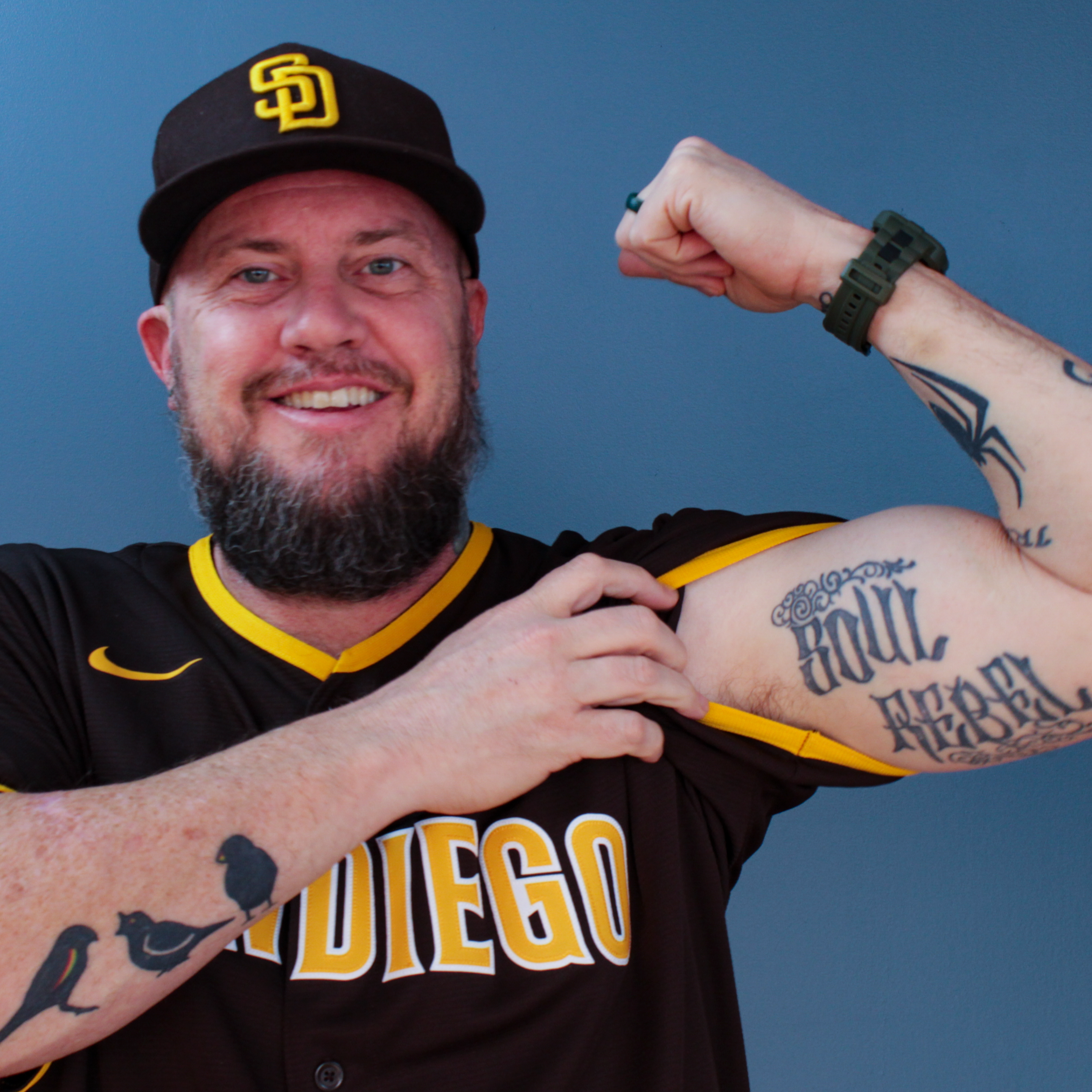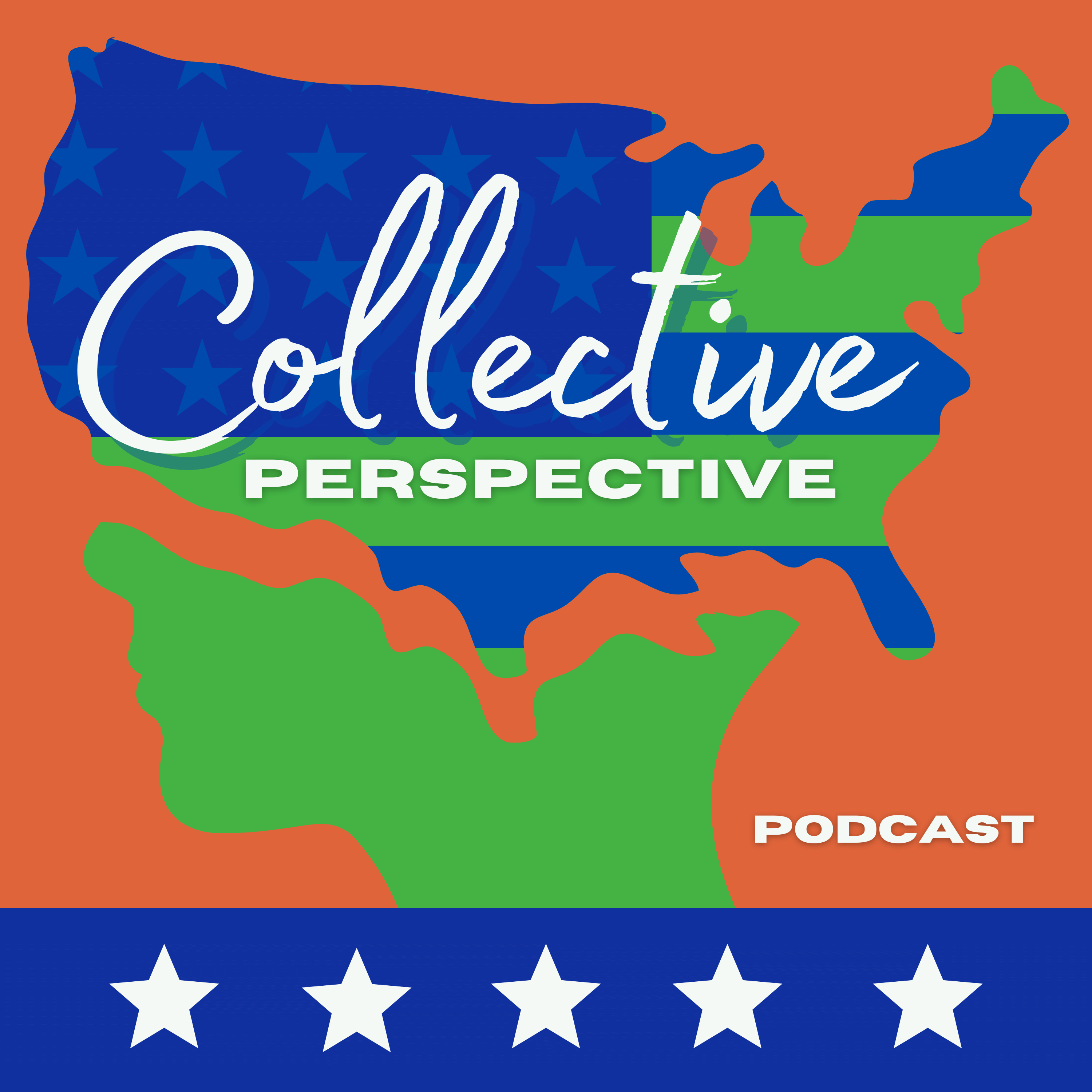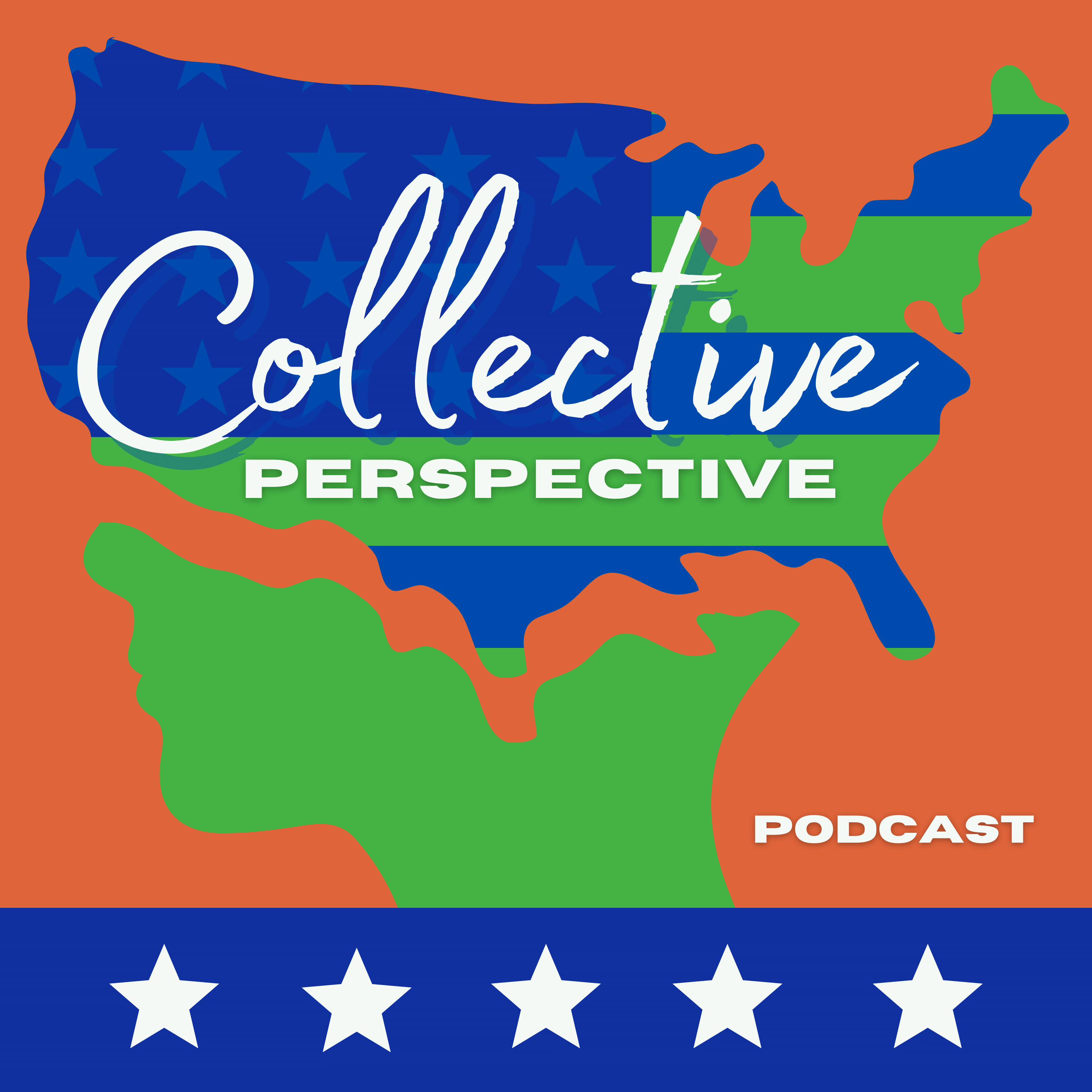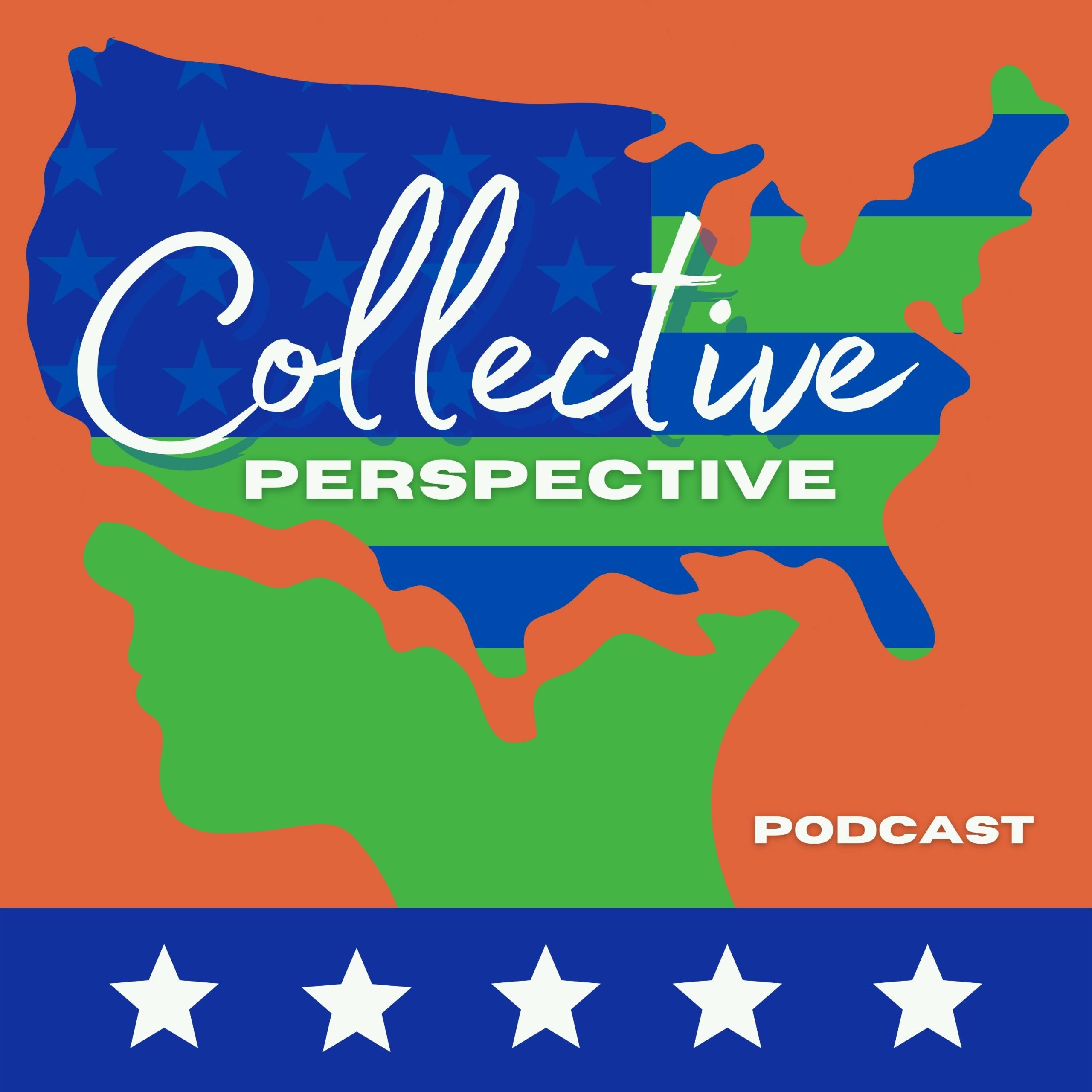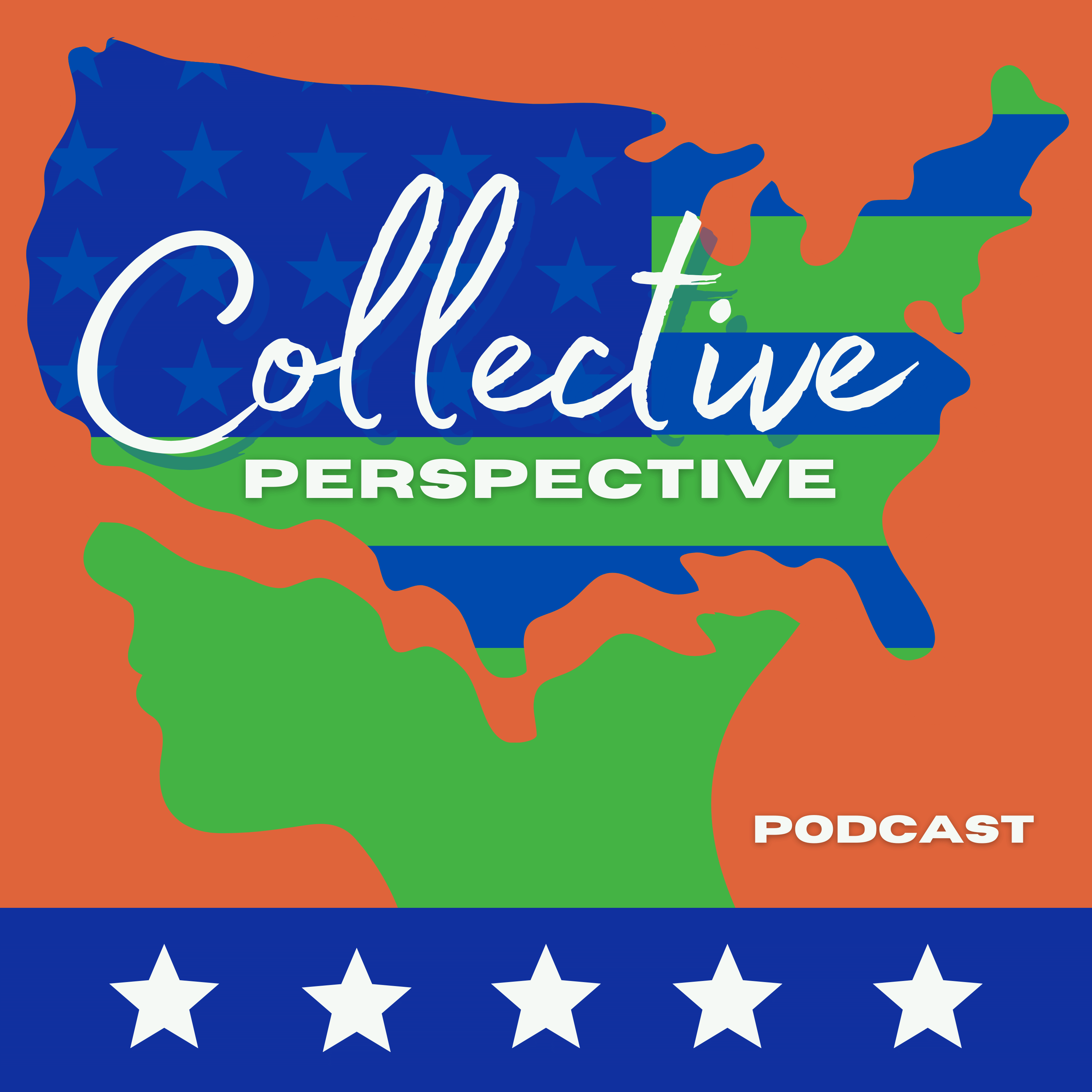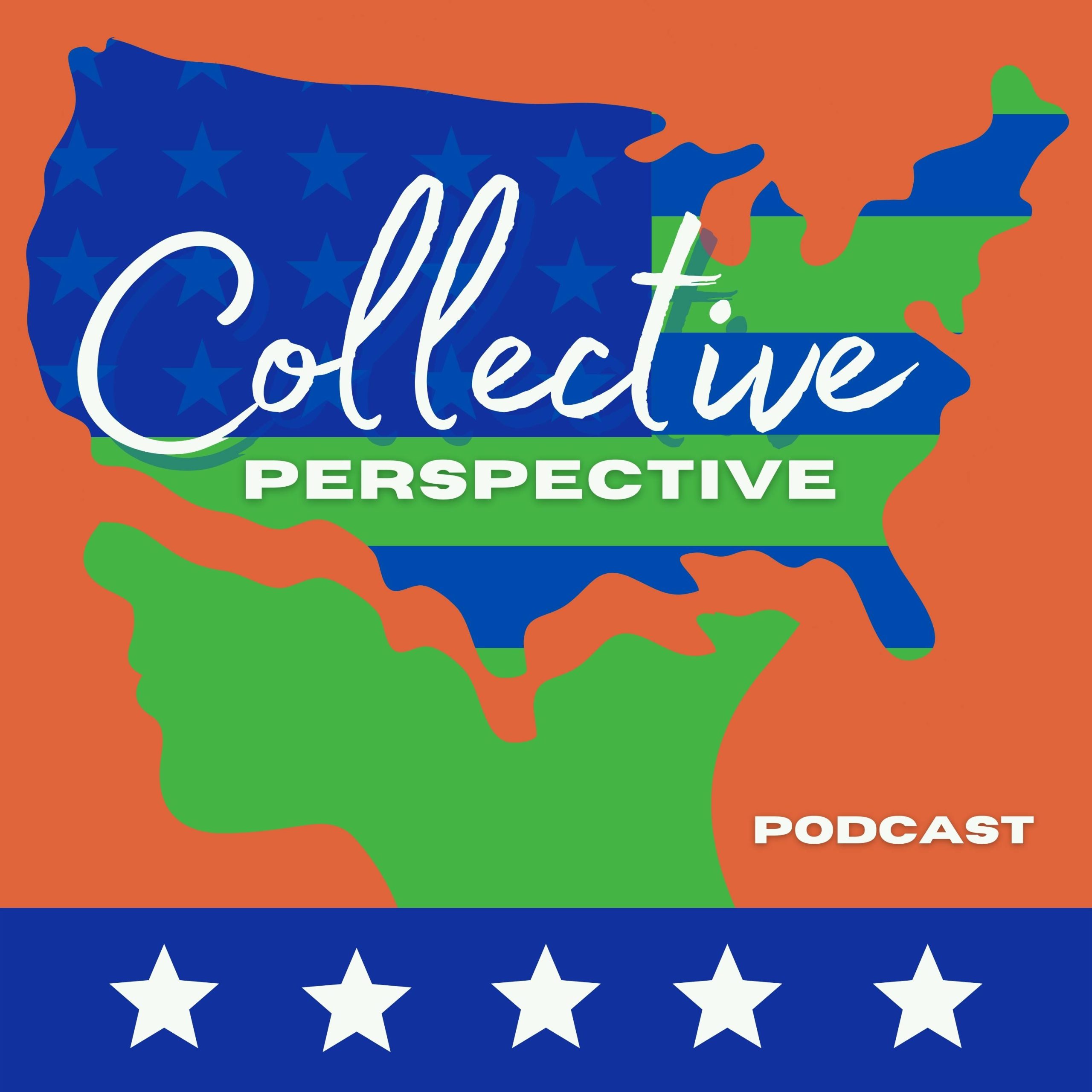Episode Transcript
Welcome to a new season of the Collective Perspective podcast. As we dive into this season, we're focusing on the pivotal upcoming election, widely considered as one of the most important of our lifetime. Join us on this journey. As we navigate through diverse perspectives, dissect key issues and explore the profound impact on our shared future, get ready for insightful discussions and thoughts.
Thought provoking insights. Welcome to the Collective Perspective Podcast, season three. Hey everybody. Welcome back to the Collective Perspective, episode 36, the second part of the John Paine interview, discussing the second amendment. Here we go. The best way to get people up in arms is to do something to the kids, in my opinion.
Because it, it, it does evince a strong emotional response. Yes. And when, I don't feel people act logically when their emotions are involved. And they will be more willing to accept more restrictions. I think you're right. Don't let a good crisis go to waste. I was watching a video the other day, this even goes back to, yes, kids.
Do you ever hear about lead paint? Yes. We were kids. They said lead paint, kids are eating lead paint. We've got to get rid of all lead paint, lead paint. You can't see through walls if it's painted with lead. Well, the government came up with a scheme that kids are eating paint, lead paint and dying.
Interesting. So now we got to get rid of all lead paint on indoor houses. Interesting. I want, is there enough lead in paint to really block like surveillance equipment? Is that a, the microwaves, the microwaves? Um, The microwaves can't penetrate lead. Well, when you think about how many layers of paint, I remember growing up in a house that had paint like this and those paint chips were quite thick talking almost up to, I'd say in some places close to two mils in thickness.
And that's a, that's a decent size amount of paint, but to your point, Is there enough lead in it to block that? I think there was probably enough to make it difficult to, for things, uh, radiation to get through for, you know, to be able to see inside of things. Yeah, that is interesting. And maybe a few years ago, I would have been like, eh, that sounds a little weird.
But at this point, With the amount, you know, especially after Edward Snowden and everything we've seen that the government is willing to do now, it wouldn't surprise me. And I don't think it would need to be a lot of lead paint, because if you think of a Faraday cage, those don't necessarily, it's not covered completely in wires.
It's just a nice little field around it. So if there's enough connecting and it's grounded, and obviously in the ground with. with whatever surface it's on, then it could act as a way to block transmissions in and out. Wonder if there are any lead houses out there and people have lost complete reception on their phones.
Yeah, that's a good point. Back to your point, though, about just keeping people scared. There's a quote I included in the book as well by H. L. Macon, who is a very hilarious commentator on democracy, especially. One of my favorite quotes from him is the whole aim of practical politics is to keep the populace alarmed and hence clamorous to be led to safety by an endless series of hobgoblins, most of them imaginary.
If there is a quote that describes the last five years of American politics better than that, like I'd love to hear it. No, that's a very good quote. I've seen a lot of his commentary too. I agree. I do like his commentary. How can individuals become more educated and engaged in discussions about the Second Amendment?
I think that's what we're doing here. In the whole purpose of what we're talking about. Yeah, listening to this podcast, obviously, I think a lot of it comes down to just educating yourself on the basics of American history, which is something that public school does a terrible job of, I can say from experience.
Yeah, I think you have to really understand not just memorizing the Bill of Rights or whatever, but really understanding the context around which it was created and what were the most significant differences between what say the English crown believed and what the founders believed about the Enlightenment.
And I don't necessarily agree with all of it, right? You know, my point about democracy earlier, that there are some serious problems with it that I think maybe the founders didn't foresee, right? Like this idea that we would have large numbers of people who enter the country illegally and are able to influence politics.
Like, I think that was something that probably wasn't even on their mind that they, we'd never seen something like that before. So that's hard to prepare for. But anyway, getting, getting to your question about the education point and what can we do to learn more about this? Yeah, I would say, first of all, educating yourself about American politics.
There are some courses that I recommend a lot, which are given for free by Hillsdale College. You can go if you just Google Hillsdale College lectures, you'll find some on the American founding, the Constitution, the Bill of Rights, Supreme Court. And they're very well done, and they really give you a great overview of what makes this country different, and how it was supposed to operate, and how we've drifted away from that.
So that would be step one, is just, you know, first principles, how is the U. S., what was the U. S. supposed to be, and what are we doing now that's different from that? And then second, you know, I would say, Hey, read the book. Yes. Yes. It's a very good book and easy, not a difficult read. It's an, it's an easy read to, it's easy to understand and grasp the concepts that you're talking about in it.
Very well laid out. Good. Yeah. Thank you. Um, I really appreciate that. You know, I don't like reading academic stuff very much. You know, I much prefer just talking straight and that's how I wrote the book. So, um, I've spent so much time in school. I agree with you there. Yep. Yep. Start there. And then also, you know, one thing I mentioned this in the book too, which is just there is a stereotype of gun owners in America, right?
That they're kind of sloppy, fat, like rednecks and run around in their trucks with their Trump, you know, hats on or whatever. Don't forget the flags. Yeah, yeah, yeah, exactly. The big flags billing out the back and I, I don't mind any of those things. Actually, I do think one thing that surprises a lot of people is they'll run into some guy at the gun range and they're like, Oh, what do you do?
He's like, Oh yeah, I'm like a heart surgeon. This is my hobby. And I come here on the weekend and like, it's, it doesn't match that at all. And I think there's value in trying to run against that stereotype. Again, I have nothing against Ford trucks and front pads or anything like that. I think anytime you're trying to make a good impression on somebody and maybe get them to at least consider an idea that they're currently against, being just a good advocate for it, right?
Presenting yourself in a way that makes it easier to be receptive to what you have to say, I think is a good idea. So yeah, I would say that like a lot of people again are surprised when they run into folks who. Don't meet this stereotype of the crazy clinger, right? And you see words like that thrown around, but yeah, I think that's a good thing.
We see it all the time when, as you mentioned in the book, when there is a, uh, an event, it's almost like the news crews seek out the experts or the, uh, scholar. scholarly people to talk about the bad aspects of the second amendment and they just look and see anybody walking down the street and flip flops and a wife beater on and say, Hey, you know, tell us what your thoughts are on this.
Yes. Yeah. You're going to get a bad taste in your mouth from something like that and tend to want to go towards more well respected or knows what their tends to look like. They know what they're talking about more and perception is key there. So yeah, you have to look like you know what you're talking about for people to trust what you say and, and believe that you're giving good information.
Definitely. Yeah. You know, that's, I'm glad you brought that up because that is. And you see this on any topic, right? And this is the classic little smoke and mirrors trick that the media plays now. And the Fox News is right out. Let's do it too. Where if you have some idea that you're against, let's just say environmentalism, something like that.
Well, if you have some guy who is pro recycling, he's going to be some polished dude in a suit, went to Harvard. He's, he's eloquent. And then if you have somebody who maybe is, uh, let's global warming, maybe as a better example, and then you have some guy who is against that and says, well, actually, yeah, maybe the, the temperature has gone up a little bit, but it probably doesn't really matter.
And maybe there's actually some benefits to that for humanity. Yeah. They're going to find, as you said, like the guy who looks like. Uh, buffoon and Hey, what do you think about this? Like, I don't know, man, I like the warm weather. What do you have against beaches or something like that? It's some version of that.
And yes, you're right. You see that all the time with gun commentary. So yeah, like there's value in trying to push against that. Yeah. And I, you know, another one is just owning guns, man. It's simple, but I think people can say what they like and what really matters is what you put your time and money and energy into.
So I do think there's a lot of value in just, Hey, get a few guns and own them, not keep them. Even if you don't use them, I think it's better to have them. Not need them. They need them, but not have, Hey, listeners, this is Jawa from the collective perspective here. Looking to elevate your business with top notch audio video and lighting solutions.
Meet Jeff Altridge, a seasoned expert in AV technology with over 20 years of experience, Jeff specializes in creating immersive environments that captivate and engage audiences from, from corporate events to retail installation. He's got the skills to transform any space, but it's not just about the tech.
Jeff understands that building strong relationships is key to fostering trust and ensuring seamless project execution. You can reach Jeff at 904 515 8141 at J A L D R I C H at gcpro. com for further details. So much inspiration, so little time. Upgrade your audio video production with Mix Theory Studios.
From ads and podcasts to original music. Great. Amazing content that helps build your brand and improve customer engagement. Our recording suites, services, and membership give you the freedom to collaborate, innovate, and create like never before. Mix Theory Studios is a music and multimedia studio production company located in downtown Jacksonville.
We at The Collective Perspective can relate to that as this This podcast would not exist without MTS Jaxx and we are so grateful for them. They can get you from the bottom of just thinking about the process of your podcast to publishing. Visit MixTheoryStudios. com today to learn more. I think one of the biggest problems in the United States today is that they're trying to divide us.
How do we come together on all this? Instead of just trying to argue with somebody that has a very closed minded thing, you wrote your book. It's very well laid out that anybody can read it and not feel that it's one sided. It is one sided in a way, it's an American side. You can argue all you want about whatever sports team, other topics, but when it comes to the country we live in and makes everything happen for us, obviously we make it happen, but allows us the ability to prosper.
There's a lack of that. I don't want that to happen. So how can we come together? No, that's I'm glad you asked it though because that that is you know In some ways the fundamental question right of any society and I think you're completely right The government does want people at odds with one another.
Yeah, there's a few things that come to mind right away, right? The first one frankly is monetary policy. So if you look at how the US is prints money and uses that to really just keep and suppress people in the United States. And you see this all over the world. But if you really look at what allows you to distance yourself from the federal government, like who are the people who are generally the most in favor of more government control?
It's the people who benefit the most from the federal government. So it's people living off the government on the dole. And this is just a classic problem. You know, Winston Churchill talked about this, right? Where he was saying, When people realize they can vote themselves, whatever they want, you know, democracy is over basically.
So if you have a lot of people who, and this doesn't necessarily just mean cash payouts, although it does take that form. It also means just benefits, right? If you're say like a government employee, you get certain benefits that come with that. It's very hard to find people who work for the federal government and don't like what the federal government does.
Not all cases, right? My mother was a public school teacher for a long time. So that she disagreed with certain things. But generally that is often true. Yeah. Again, how do you get away from that? Right? How do you break that dependence on the government? It's generally by being at least to a certain extent.
Not dependent on the, uh, the handouts. So that doesn't mean you have to be super wealthy. It can mean you have like a painting business you run on the side. It could mean you just work for a local auto shop or something. Generally speaking, those people are not big fans of handouts from the federal government.
But how do you get to that point? Well, it's very difficult when the government is inflating your currency away. So 99 percent of its value in the last hundred years since the federal reserve was created. So I think a lot of this. Comes back to inflation and getting away from the gold standard that we had, uh, back at the end of the 18 hundreds up until the seventies, I think.
Yeah. Yeah. Technically, uh, we, we've done it a couple of times. Yeah. Yeah. That was the official break, but even before that, I think we've been moving away from it for quite a while. Yeah. I, I think that's a big one. Is. If you have certain people who actually want to live up to that ideal of the American dream, which is again, I think responsibility.
And then you have those who really just want the federal government to take care of them. That's always going to be a big divide. And I think that's the fundamental divide in the U S it's not, you know, obviously we do have. Racial tension in the U S that's that exists in every country, but especially in the U S for, you know, based on our history, we have class struggles, but I think the class point is bigger and that really just comes down to not even income, right?
Like you can have somebody who is very poor, who still does not want the federal government to take care of them there. No, I'm going to take care of myself and I'm gonna figure it out. Now my mom was like that. She never wanted anything. You know, I get happy. I get happy every time I hear they're going to shut down the federal government because they haven't, uh, passed a past spending bill.
I'm like, come on, let's do it. Let's do it. Yeah. But veterans don't get paid. This is my only problem. Cause you're on the dole. I mean, you have a job and I get, I get a lot. I haven't got my percentage yet. A lot of veterans rely on that, but at the same time we could, we could do other things. Well, veterans deserve it.
Yeah. They do, uh, probably more than absolutely. No, again, there's obviously, again, my mom was a federal employee for 40 plus years, so I'm not against not to be biased. Yeah, no, I obviously military service. There's an exchange there that makes sense. Yes, of course you should get something for that. I mean, more people who are not contributing to the system.
Right. And I think that is fundamentally the biggest difference is again, just, uh, and I, again, I, this is maybe where I would start to. Disagree with some of the founders where it's I think most people probably shouldn't be allowed to vote in the u. s I think that should not be an alienable, right? Like if you're taking money from the government I don't know if you should be able to decide how the government spends money.
It spends other people's money I agree with that sentiment exactly. Yeah kind of a conflict of interest in it I I almost feel like for voting in particular. You should have to answer five simple questions Related to your state's government Before your vote counts and say you got to get like four out of those five questions right and then your vote counts Cause then you're vested in it, you understand, you're following along, you know what's going on in the politics in your area.
Yes. Uh, there's some really disturbing research about how uninformed most people are. And I know this is going to sound a little arrogant, like I'm not some expert on even my own state's government, right? Like I know who the governor is, but if you ask me a bunch of other questions, I might not be able to answer it.
But what I will say is I have a basic understanding of American history, which I think all Americans should. The way that most people make voting decisions is so just insane that it's actually hard to comprehend where it's based on things like what, uh, things as stupid as what clothing the person is wearing will influence their voting behavior.
Or for example, things that the president has absolutely no control over. So a really funny example of this that stands out is Woodrow Wilson, who I'm not a fan of, but in New Jersey, which he was supposed to be a very popular in. Apparently there was around the time he was being elected. There was an increase in shark attacks around New Jersey, and the local people were upset, and they just wanted somebody to blame, and he was probably one of the only politicians they were aware of, so he ended up doing worse in that state, and a lot of people do think it was related to that, and there's some research to prove that as well.
So, you have just, yeah, I mean, again, it, it, As you were saying earlier about, you know, people behaving logically, well, that there's your problem, like they don't. So again, I think that's why, uh, there's a good argument for not allowing everybody to vote. And I think really like for the U S to succeed longterm, we're probably going to need that, especially with our immigration system right now.
Like if we, if we can't control, yeah, the people who are in the country, then it's over. You know, what's amazing is you just outlined our whole third season that almost just a second ago when you said people come up with the craziest reasons why the vote. We set out this, this season, season three, to outline all of the reasons why people vote for somebody.
And we started with the second amendment. We're talking about women's rights issues. Mmm, that's really interesting. Why do you vote? One episode will be literally, why do you vote for one person? And we're going to talk about the candidates. This season is leading up the biggest election of our lifetime and the outcome of it is so important that we felt that we needed to do something about it.
Yes. The powers that Travis and I have are to put it out this way, have a frank discussion and educate people. We're not out to demean someone or say that they're stupid, but if you're not educated, sure. Get educated. Let us help you get educated. Listen to our simple sound bites that are easy to digest.
Just like your book. It's quite amazing how our two concepts are really kind of the core of it is Yeah Just want people to be educated and we want what's best for our country And I think that's where our hearts are and I can tell by this interview I could tell by your book and that's the way that you carry yourself part of what I Was hearing from what you were saying about the New Jersey thing is mob mentality when something You Comes up and you can you can gang up on it.
Everybody's like, oh, yeah Let's just gang up on it and keep going at it and good Yeah mountain out of a molehill if yeah, I couldn't agree more last question. So are there are there any upcoming projects or? Initiatives related to the Second Amendment that you're working on No, not currently. This was really more of a one off thing for me, something I felt really strongly about.
And there's a political commentator named Victor Davis Hanson, who calls this the monastery of the mind, where there's a temptation, I think, for a lot of conservatives to really just close themselves off. I completely understand it, especially if you are of the mind where just leave me alone, like to stay out of my life, government, stay out of my life, BLM protesters, like just keep away.
And I completely relate to that and understand it. The problem though, is that the, the opposition, like the people who do want to be involved in your life are not like that. They very much want to be involved in how you make decisions, the things you are and are not allowed to do and say and have and all that.
So. Yeah. How do you deal with that? Right. Like just buckling down and spending, you know, dinners with family and working to make money and stuff is can be a nice life until it doesn't really exist anymore. This book for me, it was just an attempt to try to contribute to that. But for now, yeah, I am more in the monastery of the mind side of things at the moment.
Yeah. I wanted this to be, a little contribution to that discussion. But I don't know, you know, I, I think in the future, I would love to be more involved in it, but at the moment, uh, I just have other priorities. I think what I'm seeing is the, the opposition to it has a better organizing effort. They organize amongst themselves and are able to influence, a small group of people are able to influence a large area.
And when it comes to the more conservative side, like you said, just leave me alone. I'll do my thing and I'll survive. Don't organize as well to get their points across to protect those rights. Yes. Yeah, it's funny Daryl Cooper. So that gentleman I mentioned a moment ago, he has a probably the most disturbing podcast I've ever listened to.
And I've listened to all sorts of crazy stuff from history called the anti humans and it details what the communists did starting in really 1918 up until about the 1950s across Eastern Europe. If you've read anything about World War Two and what the Germans did, uh, this is worse. I'll say that it definitely in scale, probably in the specifics as well.
But 1 of the things that really strikes you from what the communists did well, just from a political standpoint is they were extremely unified. So, uh, even to the point where Lenin, when they were. Quite literally shooting each other in the streets of Moscow was 100 percent focused on gaining control of the government buildings in Moscow.
He didn't, and this was during World War One, right? And, you know, he didn't care if the Germans start taking over large amounts of Russian territory. He didn't care about some treaty or agreement that was being negotiated. He was, we are taking over the government and we're doing it now and nothing is going to stop us from doing that.
Terrible person, but I am also not advocating for the destruction of government property or taking over buildings, but. Um, that kind of focus is what is required to make any kind of political change. And you're right. We don't have anything like that. And this is One of the reasons I think so many people who actually do believe in America and what it should be and what it was supposed to be are so sick of the Republican Party, too, because it really, the old joke that the Republicans want the same thing as the Democrats, just slower, is, it seems true more often than not, unfortunately.
I agree. What's the difference between Republican and Democrat and pandemic is how long they wore their masks. Yeah. Yeah. I had not heard that, but that is very well put. I hadn't heard that either. Yeah. No. We're going to need bigger change than that in the U. S. before something, before we get back on the right track.
I want to thank you. Travis wants to thank you. Yes, thank you very much. This was a very good conversation. Thank you for sharing your insights and your perspectives on the Second Amendment. Like I said in the beginning, I think it was really something that, you know, This podcast had to happen. Your book has to happen.
More people need to listen to us, what we're talking about. We only want the best for ourselves and our families and the freedoms of that this country provides. Do you have any final thoughts that you'd like to share with the audience? No. Well, first of all, thank you so much for having me. And I love talking to both of you.
I think what you're doing is great. You know, we do need more people doing things like you are doing final thoughts. I would say maybe just going back to that point about. If you can't argue both sides of something, be comfortable not having a strong opinion about it. And I think just keep that in mind.
If we get into this next election in the United States, don't, don't trust what you hear from politicians, unless you can really speak with some knowledge on both sides of it, because you're going to hear a lot of things and a lot of it's not going to be true. Uh, and that's always the case with, you know, politics and especially American politics now.
Yeah. Uh, and then buy some guns. That would be the other one. Learn how to use them. I need to go buy more bullets. Uh, I need more guns. I've got a, I don't have enough. Yes to both. Thank you, thank you very much. Um, I agree that being more knowledgeable and understanding both sides of the of the topic will help people make a better informed decision come election time.
I think if you can't argue both sides of the topic you need to get educated. You should really educate yourself. Yeah. Make it a stronger argument for what you're saying. I agree. You'll probably realize that you're wrong or maybe you're right. Yeah. You know, one actually, now that I think about it, one other thing that I've said kind of jokingly, but I do believe it.
And I do think this way when it comes to voting is. You really have to pick the two or three things you care about most and make your decision based on that because it can be so messy and complicated now where, you know, it's like, you know, I like MMA and the UFC and so on and people get so nitpicky about, um, you know, techniques and so on.
You're like, you just make up a few reasons and you, you know, pick your fighter based on that. It's a little bit like that with politics. Uh, so, and the reason I bring that up is, you know, for example, I have a friend who is very pro abortion, right? So like, she just makes all of her decisions based on that.
And the thing I'm always telling her is like, look, I don't personally agree with you. What I will say is you also have to look at how likely is that even to happen, right? There's basically, there's very little political will on the Republican side to really restrict abortion rights. The idea that that's really going to be an issue that's decided is unlikely.
And yes, I know about Roe versus Wade and so on, but it just allowed the states to decide. And they've basically just done the same thing except for a few Southern states, um, which were, it was already, you know, somewhat restricted. So the point is you have to really look at the likelihood of something happening.
And so if you look at the issues, like I'll take myself as an example to personalize it. So guns, very important to me, very, very important. Has very large political ramifications for the country and also is very likely to be ruled upon. You know, we're constantly having debates about this. This is a real thing that could change significantly one way or another.
Immigration, very important, something that definitely can be impacted in a pretty short period of time if there's any kind of political will behind it. You know, in the economy that almost changes second a new person comes into office and it quite literally does in many cases just from the confidence that the markets have in that person.
So you really, again, I would say it's the combination of what, what is important to you and what will actually, what actually has a high likelihood of happening and vote in that direction. I think that's good advice. That sounded well, hey man. Thank you again so much for your time. This has been great.
Very informative. It was awesome to hear what you were outlining in your book and even, even, uh, so far as the dry fire and all, all, all of the practicing techniques that you had. Great advice. And that's a great way to really become comfortable with, with a weapon, with a gun. Is to practice in a safe manner like that.
I feel that that that's the key to responsible ownership of anything that can be dangerous is knowing how to handle that object.
